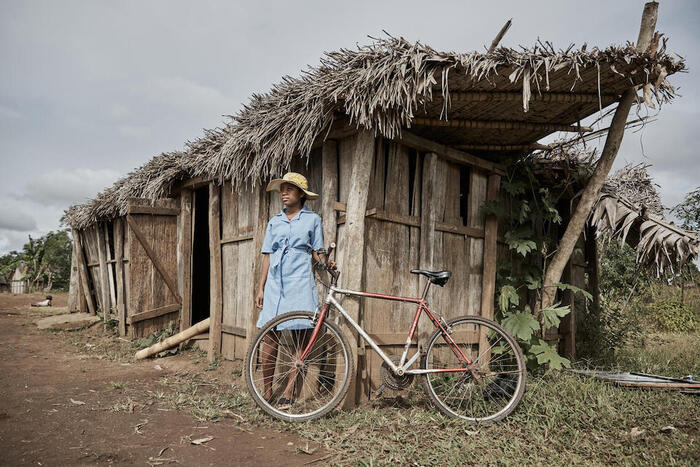
Prospects for Children: Cooperation in a Fragmented World
Part of a series of reports produced each year by UNICEF Innocenti – Global Office of Research and Foresight, this Global Outlook for 2024 identifies eight key trends that will shape children’s lives and provides policy guidance to protect their rights and well-being.
The world is at a pivotal juncture, faced with a choice between greater global collaboration and increased fragmentation and isolationism. The future of children globally hinges on the international community's capacity for cooperation and competition.
These are the main themes of the January 2024 report from UNICEF Innocenti entitled, Prospects for Children: Cooperation in a Fragmented World.
The report examines and provides policy guidance for eight key trends shaping children's lives. In brief:
- Geopolitical shifts and the rise in conflict are increasing children's exposure to violence and war, raising the risk of grave violations of child rights while also diverting resources from education, health care and nutrition. States must strengthen monitoring and accountability mechanisms to better protect children in conflict situations, and the international community needs to expand humanitarian aid to avoid creating ‘"forgotten emergencies."
- Economic fragmentation threatens families' livelihoods and increases food prices, affecting nutrition and children's development and youth employment. Economic solidarity, market collaboration and investing in future skills can safeguard children’s rights and futures.
- A fragmented multilateral system is not delivering on key issues for children; through governance and financing reforms, the course can be reset. The United Nations, international financial institutions, regional organizations and others should mainstream child rights and interests into policies, programs and agreements, and allow children and young people to meaningfully participate in decision-making processes and in reshaping the multilateral system.
- Structural inequities in international financing will continue to limit developing countries’ investments in children, and debt crises hurt children through austerity budgets and weakened social safety nets. Overhauling the governance and lending capacity of international financial institutions is a major reform effort expected to dominate in 2024; a more inclusive global financial system would yield many benefits for children.
- Global democracy faces unprecedented risks presented by disinformation and higher levels of political violence. Positive forces, including those led by children and youth, may still reverse the democratic decline.
- Fast-tracking the transition to green energy creates new job prospects, yet could increase children's exposure to harmful labor practices. Joint action between governments and businesses is essential to ensure that regulatory frameworks and corporate standards consider child rights issues. Inclusive opportunities for young people to build new skills and access green jobs are critical; policymakers should consider a holistic, life-cycle approach to supporting green school-to-work transitions.
- Three particularly harmful impacts of climate change — extreme weather linked to El Niño, the rise in outbreaks of mosquito-borne diseases and increasing water scarcity — present major dangers to children. Governments need to adopt integrated solutions to the climate crisis that focus on prevention, are backed by research and development, and emphasize global collaboration and innovation. Early warning systems need to be strengthened to mitigate impacts from weather disasters, and climate change adaptation and resilience efforts that prioritize children must be accelerated.
- Increased use of technologies like AI brings new opportunities for children's learning, health care and development, but should not go unchecked; there must be responsible design and regulation. Digital policies and cooperation must prioritize children, resonate with their lived digital experiences and truly serve their needs and hopes, and Big Tech must be held accountable to minimize risks.

In collaboration with the Frederick S. Pardee Center for International Futures, the report's researchers also explored four scenarios for how the world might change between 2024 and 2050, depending on various degrees of international cooperation and technological advancement.
The report presents each scenario's vastly different implications for children. The main takeaway: the higher the level of cooperation and advancement, the better the outcome for children's health, education and overall well-being. Making the best-case scenario a reality, the report concludes, will require proactive policies and collective action focused on children's needs and rights.
"A brighter tomorrow starts with the policy choices we make today," the report states. "These choices are not always straightforward or easy, but success is possible. History shows that collaboration can create dramatic change for children."
Read Global Outlook 2024 Executive Summary.Read the full report.